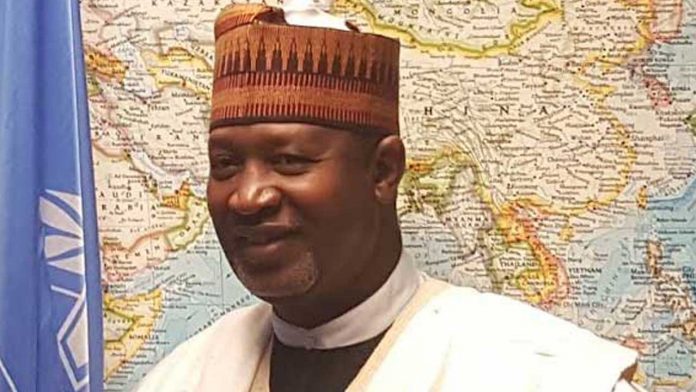….. IATA Backs Bailout
As the COVID-19 pandemic lingers, globally, experts in the aviation industry are worried on the best approach to safety in the post-recovery period. The fears are not unconnected with an observation made recently on the impossibility of observing social distancing onboard an aircraft.
President of Aviation Safety Round Table Initiative (ART), Dr Gabriel Gbenga Olowo who disclosed the big challenge at the weekend, stated that social distancing is practically impossible in Aviation.
Already, the International Air Transport Association (IATA) has announced that it supports the wearing of masks for passengers and crew while on board aircraft, but does not support mandating social distancing measures that would leave middle seats empty.
Evidence suggests that passengers and crew wearing masks on board will reduce the already low risk of flying, while avoiding the dramatic cost increases to air travel that onboard social distancing measures would bring.
Commenting, IATA’s director-general and CEO, Alexandre de Juniac said, “The safety of passengers and crew is paramount. The aviation industry is working with governments to re-start flying when this can be done safely. Evidence suggests that the risk of transmission on board aircraft is low.
“We will take measures—such as the wearing of face coverings by passengers and masks by crew—to add extra layers of protection. We must arrive at a solution that gives passengers the confidence to fly and keeps the cost of flying affordable. One without the other will have no lasting benefit”.
‘As part of the preventive measures to curb the spread of the virus, the Nigerian government had few weeks ago extended the ban on all flights operations in the in the country”, De Juniac added.
Reacting on the extension of the ban by the Presidential Task Force on COVID-19, Dr Olowo said “regrettably data has confirmed that we have not been able to flatten the curve. Ratios of confirmed/discharged cases have also not improved. It moved from 5:1 to 6: 1 rather than reducing.
“A very negative signal. Given that social distancing is practically impossible in aviation business, a sufficient condition for health and safety is to defer flight operations.
Olowo, who is also the president, Sabre Network, West Africa, stated that bailout fund is a necessary condition for survival of the sector that has not been quite strong and competitive prior to COVID-19. The aviation expert warned that, failure by government not to, would have been unprofessional and insensitive.
Commending the minister of Aviation, Senator Hadi Sirika and his team, the aviation expert said “Arik, Aero were already economically under Intensive Care Unit (ICU) before COVID-19 and many others with names withheld.”
On way forward, Olowo noted that N2 trillion which is approximately $5 billion, may not be enough for passenger airlines alone, let alone the airports, GDSs TMCs, OTAs, travel agents, ground handlers, catering and the entire supply chain for loss of business and negative impact of COVID-19 during the lockdown and flight restrictions.
“Best approach will be to do three-year average business revenue of stakeholders and peruse their losses for grants. Or pay wage bill for initial period of six-months, covering second quarter and third quarter of 2020 to prevent job losses.
“Option of loans and loan guarantees, at less than five per cent interest rate should be considered. There is also need for 2020 tax waivers, VAT exemptions, tax holidays, etc”, Olowo averred.
While calling for aviation-specific financial relief measures from the government of Nigeria to address the severe impact of the COVID-19 crisis on the air transport sector, IATA had equally stressed that “air transport has ground to a halt in efforts to stop the spread of COVID-19.
Along with the direct impact on jobs and companies in aviation, related industries including tourism, hospitality and trade have been hit hard.” According to IATA, All these industries play an essential role in creating jobs and powering economies.
Prior to the crisis, aviation contributed $1.7 billion to Nigeria’s GDP and supported 241,000 jobs. IATA estimates that the COVID-19 crisis puts 124,000 Nigerian jobs at risk and some $900 million of the country’s GDP.
Although Nigerian government had introduced broad economic relief packages to mitigate the devastation caused by COVID-19,; IATA however, urges the government to implement specific financial relief measures for aviation to ensure that, the sector will be capable of driving the recovery.


